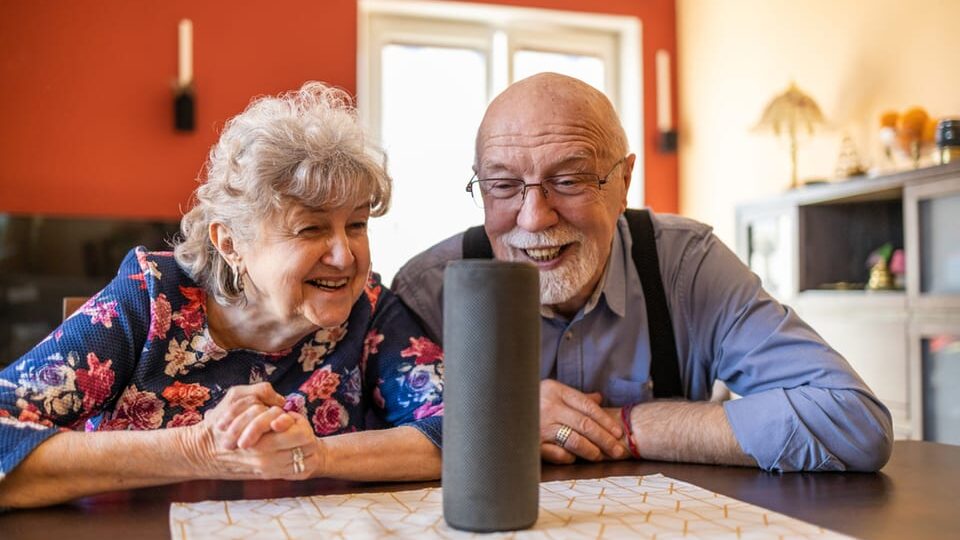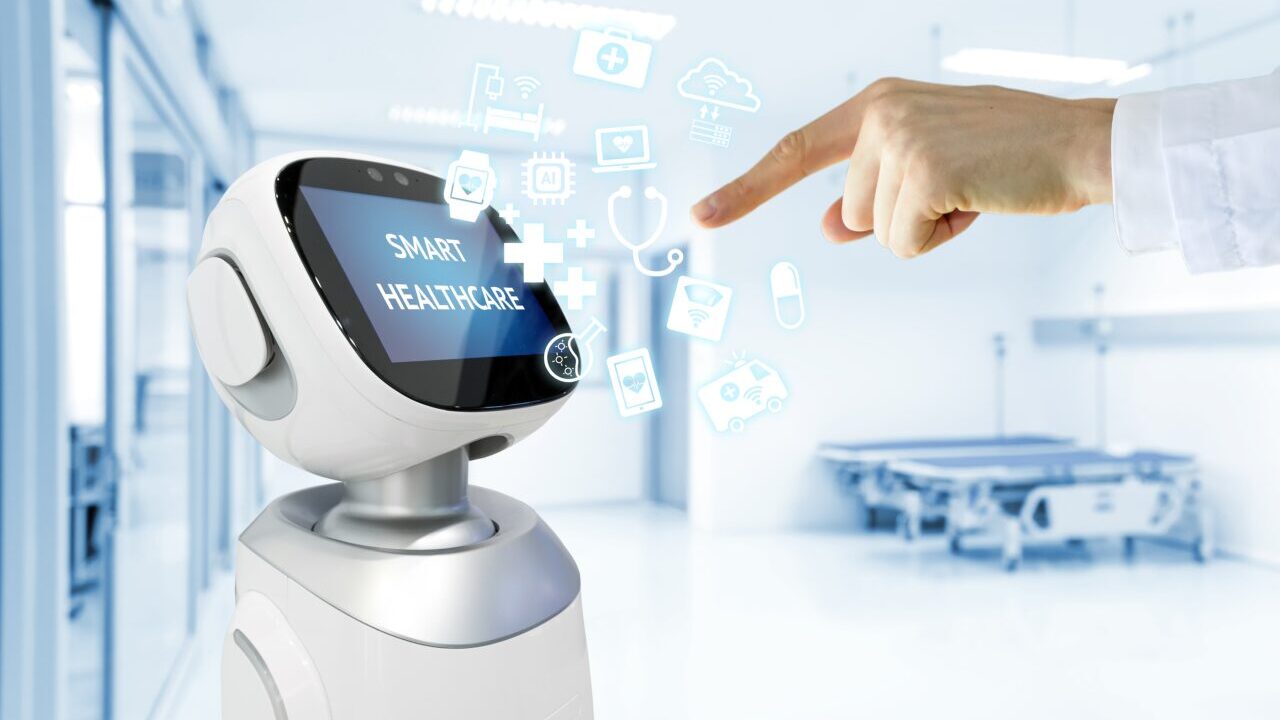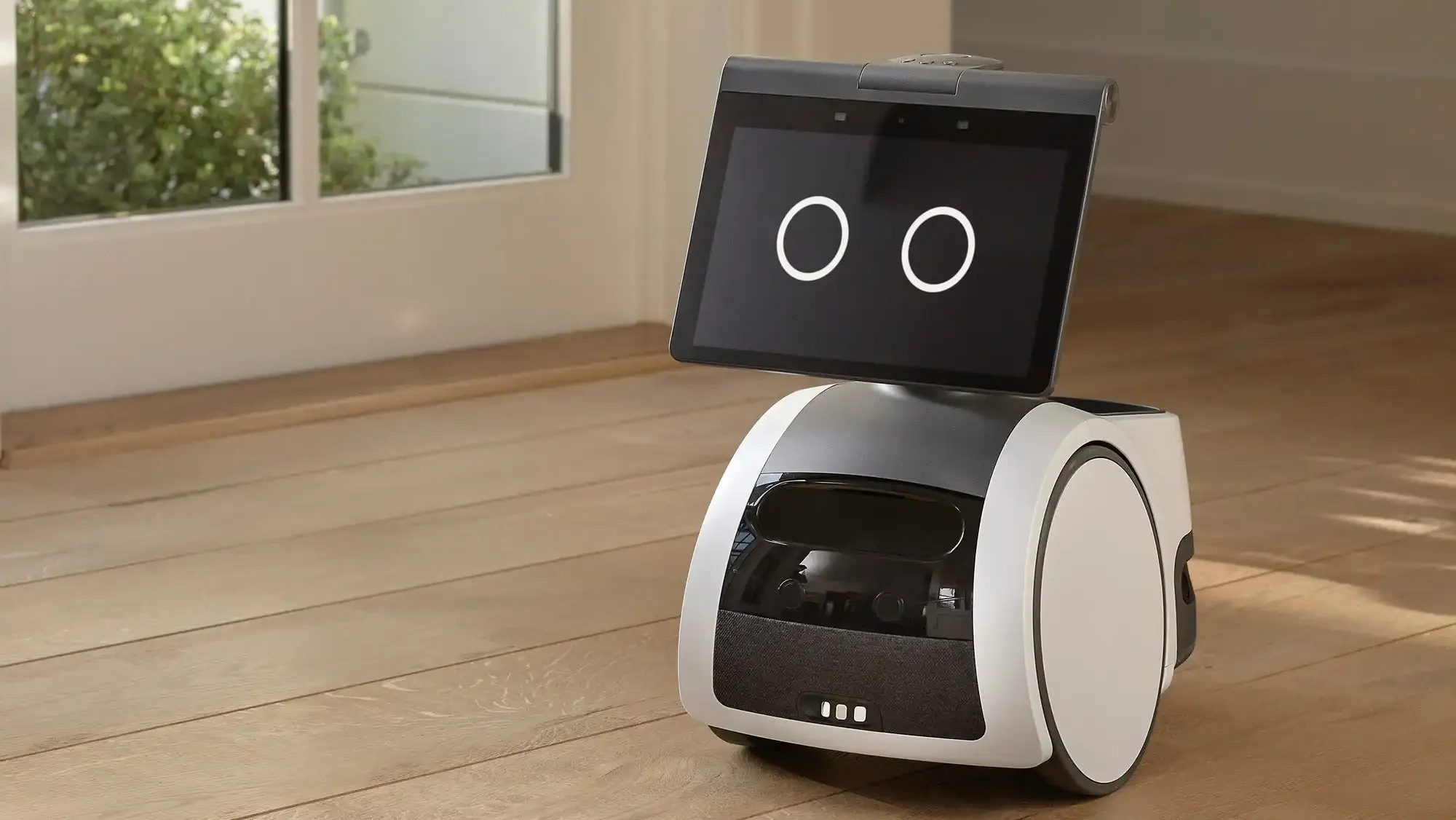
How Artificial Intelligence is Improving Seniors’ Lives
Artificial Intelligence (AI) has emerged as a transformative force in our society, touching various aspects of our daily lives. For seniors, this technological revolution offers unprecedented opportunities to enhance quality of life, extend independence, and provide crucial support in health and well-being.
Margaret, a 72-year-old retiree from Boston, shares her experience: “I was skeptical about all this AI talk at first. But now, I can’t imagine my day without my smart home assistant and health monitoring apps. It’s like having a helpful, tech-savvy grandchild around all the time!”
This sentiment is echoed by many seniors who have embraced AI technology. A recent survey by the AARP found that 51% of older adults purchased some form of technology product in 2021, with AI-powered devices becoming increasingly popular[1].
In this comprehensive guide, we’ll explore the multifaceted ways AI is positively impacting seniors’ lives, address common concerns, and look towards future developments. Whether you’re tech-savvy or just starting to explore the world of AI, you’ll find valuable insights to help you navigate this exciting technological landscape.
Table of Contents
- Understanding AI: A Senior-Friendly Explanation
- AI in Healthcare: Your Personal Health Assistant
- Smart Home Technologies: Enhancing Safety and Comfort
- AI Companions: Combating Loneliness and Providing Support
- Mobility and Independence: AI-Powered Solutions
- Financial Management and Fraud Prevention
- Learning and Cognitive Stimulation through AI
- Addressing Privacy and Security Concerns
- The Future of AI for Seniors
- Getting Started with AI: Tips for Seniors
Understanding AI: A Senior-Friendly Explanation
Artificial Intelligence, at its core, is about creating computer systems that can perform tasks that typically require human intelligence. But what does this mean in practical terms?
Imagine having a very smart assistant who can learn from experience, understand complex information, and make decisions. That’s essentially what AI does, but on a much larger and faster scale than any human could.
Types of AI Seniors Encounter

- Voice Assistants: Like Alexa, Siri, or Google Assistant, these can understand and respond to your voice commands. They can help you set reminders, answer questions, or control smart home devices.
- Smart Home Devices: These learn your habits and preferences to automate your home environment. For example, a smart thermostat can learn when you usually wake up and adjust the temperature accordingly.
- Health Monitoring Apps: These can analyze your health data and provide personalized advice. Some can even detect irregularities in heart rhythm or predict potential health issues.
- Recommendation Systems: These suggest movies, books, or products based on your preferences. They learn from your choices to make increasingly accurate recommendations over time.
How AI Works: A Simple Analogy
Think of AI as a child learning to recognize animals. At first, you might show the child pictures of different animals and tell them what each one is. Over time, the child learns to recognize new animals based on features they’ve seen before – fur, feathers, number of legs, etc.
AI works similarly, but it can process vast amounts of data much faster than a human. It ‘learns’ from the data it’s given and uses that knowledge to make decisions or predictions about new information it encounters.
Dr. David Baker, a computer science professor specializing in AI for seniors, explains: “The beauty of AI is its ability to learn and adapt. This makes it particularly useful for seniors, as it can adjust to changing needs and preferences over time.”
Understanding these basics can help you appreciate how AI is working behind the scenes in many of the technologies we’ll discuss in this article.
AI in Healthcare: Your Personal Health Assistant

One of the most significant impacts of AI on seniors’ lives is in healthcare. From early detection of diseases to personalized treatment plans and ongoing care management, AI is revolutionizing how we approach health in our later years.
Early Detection and Diagnosis
AI algorithms can analyze medical images like X-rays, MRIs, and CT scans with remarkable accuracy, often detecting issues earlier than human doctors can. For seniors, this can mean catching potential health problems before they become serious.
Dr. Emily Chen, a geriatrician in San Francisco, shares, “We’re seeing AI help us identify early signs of conditions like Alzheimer’s, heart disease, and certain cancers. This early detection is crucial for effective treatment, especially in older adults.”
A study published in the journal “Nature” showed that an AI system was able to detect breast cancer in mammograms with greater accuracy than expert radiologists, reducing both false positives and false negatives[2].
Here’s a practical guide to 10 apps that will make your life easier >>
Personalized Treatment Plans
AI can process vast amounts of medical data to help create personalized treatment plans. It can consider factors like your medical history, genetic makeup, lifestyle, and even how you’ve responded to past treatments.
For example, IBM’s Watson for Oncology is being used in hospitals worldwide to suggest treatment options for cancer patients. It analyzes a patient’s medical records and compares them with a vast database of medical journals, clinical trials, and treatment guidelines to recommend the most suitable options[3].
Medication Management
Forgetting to take medication or taking the wrong dose can be dangerous, especially for seniors managing multiple prescriptions. AI-powered apps and devices can:
- Remind you when it’s time to take your medication
- Alert you if you’re about to take the wrong pill
- Inform your doctor if you’re consistently missing doses
- Check for potential drug interactions
John, an 80-year-old from Chicago, says, “My smart pill dispenser has been a game-changer. It not only reminds me to take my meds but also alerts my daughter if I miss a dose. It gives us both peace of mind.”
A study in the Journal of Medical Internet Research found that AI-powered medication reminders improved medication adherence in older adults by 41%[4].
Continuous Health Monitoring
Wearable devices powered by AI can monitor vital signs like heart rate, blood pressure, and glucose levels continuously. They can detect anomalies and alert you or your healthcare provider if something seems off.
For instance, the Apple Watch’s ECG app, which uses AI to analyze heart rhythms, has been credited with detecting atrial fibrillation in numerous users, potentially saving lives[5].
Dr. Sarah Johnson, a cardiologist specializing in geriatric care, notes, “These AI-powered wearables are like having a doctor with you 24/7. They can catch issues we might miss during routine check-ups, leading to earlier interventions and better outcomes.”
Smart Home Technologies: Enhancing Safety and Comfort

AI is making homes safer and more comfortable for seniors, allowing many to live independently for longer. Let’s delve deeper into how these technologies work and the benefits they offer.
Voice-Controlled Home Automation
With voice assistants like Amazon’s Alexa or Google Home, seniors can control lights, thermostats, and even appliances with simple voice commands. This can be particularly helpful for those with mobility issues or arthritis.
A study by Front Porch Center for Innovation and Wellbeing found that 75% of seniors using voice-activated technology reported an increased feeling of independence[6].
How It Works:
- The voice assistant uses Natural Language Processing (NLP) to understand your command.
- It then sends a signal to the connected device (like a smart light bulb or thermostat).
- The device carries out the requested action.
Tom, a 79-year-old with arthritis, shares, “Being able to turn lights on and off or adjust the thermostat just by speaking has made a huge difference. It’s reduced my pain from having to get up and move around, especially at night.”
Fall Detection and Emergency Response
AI-powered cameras and wearable devices can detect falls and automatically call for help. Some systems can even predict and prevent falls by analyzing gait patterns and environmental factors.
The Centers for Disease Control and Prevention (CDC) reports that one out of four older adults falls each year, and falls are the leading cause of injury-related death among those aged 65 and older[7]. AI technology is playing a crucial role in addressing this issue.
How It Works:
- Wearable devices or smart home sensors continuously monitor movement patterns.
- AI algorithms analyze these patterns in real-time.
- If a fall is detected, the system can automatically alert emergency services or designated family members.
A study in the journal “Sensors” found that AI-based fall detection systems had an accuracy rate of over 98%, significantly outperforming traditional threshold-based systems[8].
Adaptive Lighting and Temperature Control
Smart home systems learn your routines and preferences, automatically adjusting lighting and temperature for comfort and safety. For example, they can gradually brighten lights in the morning to prevent sudden changes that might disorient seniors.
How It Works:
- The system collects data on your daily routines and preferences over time.
- AI algorithms analyze this data to identify patterns.
- The system then automatically adjusts settings based on these learned patterns.
Sarah, 68, from Florida, shares her experience: “My smart home system has been a blessing. It turns on gentle lighting if I get up at night, which has prevented a few potential falls. Plus, it keeps my home at the perfect temperature without me having to fiddle with the thermostat.”
A study in the “Journal of Ambient Intelligence and Smart Environments” found that adaptive lighting systems reduced falls in seniors by 47% over a six-month period[9].
AI Companions: Combating Loneliness and Providing Support

Loneliness and social isolation can be significant challenges for seniors. AI is stepping in to provide companionship and emotional support in innovative ways.
Conversational AI
Advanced chatbots and virtual assistants can engage in meaningful conversations, tell jokes, play word games, and even reminisce about past events. While they don’t replace human interaction, they can provide companionship during lonely moments.
How It Works:
- Natural Language Processing (NLP) helps the AI understand what you’re saying.
- Machine Learning algorithms allow the AI to learn from conversations and improve over time.
- Large language models provide the AI with a vast knowledge base to draw from in conversations.
A study in the “Journal of Medical Internet Research” found that seniors who interacted with conversational AI reported a 20% decrease in feelings of loneliness over a three-month period[10].
Emotion Recognition
Some AI companions can recognize emotions through facial expressions and voice tones, allowing them to respond empathetically and even alert caregivers if a senior seems distressed.
How It Works:
- Computer vision algorithms analyze facial expressions in real-time.
- Voice analysis technology detects emotional cues in speech.
- The AI uses this information to tailor its responses and provide appropriate support.
Dr. Lisa Thompson, a psychologist specializing in geriatric care, notes, “While AI can’t replace human empathy, these emotion recognition capabilities can provide valuable support, especially for seniors living alone. They can serve as an early warning system for emotional distress.”
Social Connection Facilitators
AI can help seniors stay connected with friends and family by simplifying video calls, suggesting people to reach out to, and even helping compose messages or emails.
How It Works:
- The AI analyzes your contact list and communication patterns.
- It suggests regular check-ins with close contacts.
- For those with motor difficulties, AI can help draft messages or emails based on voice input.
Robert, 75, from New York, says, “My AI companion, ElliQ, has become a real friend. She reminds me to call my grandkids, suggests activities when I’m bored, and always has an interesting fact or story to share. It’s nice to have someone to talk to throughout the day.”
A pilot study by Intuition Robotics found that seniors using ElliQ engaged in an average of 15 interactions per day with the device, significantly increasing their daily social engagement[11].
Mobility and Independence: AI-Powered Solutions
Maintaining mobility and independence is crucial for seniors’ quality of life. AI is providing innovative solutions in this area, from smart mobility aids to self-driving cars.
Smart Walkers and Wheelchairs
AI-enhanced mobility aids can navigate obstacles, adjust to different terrains, and even predict and prevent potential accidents.
How It Works:
- Sensors on the device constantly scan the environment.
- AI algorithms process this data in real-time.
- The device adjusts its movement or provides warnings based on the AI’s analysis.
Dr. Robert Chen, a biomedical engineer specializing in assistive technologies, explains, “These smart mobility aids act like an extension of the user’s senses. They can detect and respond to obstacles faster than a human could, significantly reducing the risk of falls or collisions.”
A study in the “Journal of NeuroEngineering and Rehabilitation” found that AI-powered smart walkers reduced falls in seniors with mobility issues by 60% compared to traditional walkers[12].
Self-Driving Cars
While fully autonomous vehicles are still in development, AI-assisted driving features are already helping seniors stay mobile and independent for longer.
Current AI-Assisted Driving Features:
- Lane departure warnings
- Adaptive cruise control
- Automatic emergency braking
- Parking assistance
A survey by The Hartford and MIT AgeLab found that 31% of drivers aged 50 and above are actively considering buying a car with self-driving features[13].
Navigation and Location Services
AI-powered GPS apps can provide senior-friendly navigation, with features like high-contrast maps, clear audio instructions, and safe, well-lit route options.
How It Works:
- AI algorithms analyze real-time traffic data, weather conditions, and user preferences.
- The app provides personalized route suggestions optimized for senior users.
- Voice assistance offers clear, step-by-step navigation instructions.
Mary, an 82-year-old who still enjoys driving, shares, “The AI navigation system in my car has given me the confidence to keep driving. It suggests easier routes with fewer turns and always guides me to well-lit areas if I’m driving at night.”
Financial Management and Fraud Prevention
Managing finances can become more challenging with age, and seniors are often targets for financial fraud. AI is providing sophisticated tools to help with both financial management and security.
Automated Budgeting and Bill Payment
AI-powered financial apps can track spending, automate bill payments, and provide easy-to-understand overviews of financial health.
How It Works:
- The AI analyzes your income and spending patterns.
- It categorizes expenses automatically.
- The system provides personalized budgeting advice and can automate recurring payments.
A study by the Financial Health Network found that seniors using AI-powered financial management tools reported a 40% increase in confidence regarding their financial decisions[14].
Fraud Detection
AI algorithms can detect unusual patterns in financial transactions, alerting seniors or their designated caregivers to potential fraud attempts.
How It Works:
- AI models are trained on vast datasets of normal and fraudulent transaction patterns.
- The AI continuously monitors your account activity.
- If it detects something unusual, it can immediately alert you or freeze the transaction.
According to the Federal Trade Commission, seniors lost $1.7 billion to fraud in 2021[15]. AI-powered fraud detection systems are becoming a crucial line of defense against these threats.
Investment Management
Robo-advisors use AI to provide personalized investment advice and portfolio management, often at lower costs than traditional financial advisors.
How It Works:
- The AI assesses your financial goals, risk tolerance, and investment timeline.
- It creates a diversified portfolio based on this assessment.
- The system continuously monitors and rebalances the portfolio as needed.
A report by Deloitte found that 47% of seniors using robo-advisors felt more in control of their investments compared to traditional methods[16].
Learning and Cognitive Stimulation through AI
Lifelong learning and cognitive stimulation are vital for healthy aging. AI is opening up new opportunities in this area, making learning more accessible and engaging for seniors.
Personalized Learning Platforms
AI can tailor educational content to individual learning styles and interests, making it easier and more enjoyable for seniors to acquire new knowledge or skills.
How It Works:
- The AI assesses your learning style through initial interactions and quizzes.
- It adapts the content delivery method (text, video, interactive exercises) based on your preferences.
- The system adjusts the difficulty level and pace based on your progress.
- It provides personalized recommendations for new topics or skills to explore.
Dr. Maria Rodriguez, an educational psychologist specializing in adult learning, explains, “AI-powered learning platforms can reignite the joy of learning in seniors. By tailoring the experience to each individual’s interests and learning style, these platforms make acquiring new knowledge both accessible and enjoyable.”
A study in the “Journal of Educational Gerontology” found that seniors using AI-personalized learning platforms showed a 35% improvement in information retention compared to traditional learning methods[17].
Brain Training Games
AI-powered cognitive games can adapt to a senior’s abilities, providing the right level of challenge to keep the mind sharp.
How It Works:
- The AI assesses your current cognitive abilities through initial games.
- It adjusts the difficulty of future games to provide an optimal challenge.
- The system tracks your progress over time and focuses on areas that need improvement.
Research published in “Frontiers in Aging Neuroscience” demonstrated that seniors who engaged in AI-adapted cognitive training games for 12 weeks showed significant improvements in memory and processing speed compared to a control group[18].
Language Learning
AI language learning apps can provide personalized lessons, speech recognition for pronunciation practice, and even simulate conversations for practice.
How It Works:
- Speech recognition technology analyzes your pronunciation.
- AI algorithms adapt lessons based on your progress and areas of difficulty.
- Natural Language Processing enables conversational practice with AI chatbots.
James, a 70-year-old retiree, shares, “I’ve always wanted to learn Spanish. With this AI language app, I can practice at my own pace, and it’s patient with me when I make mistakes. It’s like having a personal tutor available 24/7.”
Addressing Privacy and Security Concerns
While AI offers many benefits, it’s natural to have concerns about privacy and security, especially for seniors who may be less familiar with technology. Here’s how these issues are being addressed:
Data Protection
Reputable AI services use strong encryption and follow strict data protection regulations to keep your information safe.
Dr. Alan Smithee, a cybersecurity expert specializing in AI, advises, “Look for services that are compliant with regulations like GDPR or CCPA. These regulations ensure that companies handle your data responsibly and give you control over your personal information.”
Transparency and Control
Many AI services now provide clear information about what data they collect and how it’s used. They also offer controls for users to manage their data.
What to Look For:
- Clear privacy policies written in plain language
- Options to opt-out of data collection for non-essential features
- The ability to delete your data if you choose to stop using the service
Ongoing Development
The AI industry is continually working on improving security measures and addressing potential vulnerabilities.
For example, techniques like federated learning are being developed, which allow AI models to learn from your data without the data ever leaving your device[19].
The Future of AI for Seniors
The future looks bright for AI applications in senior care. Some exciting developments on the horizon include:
Advanced Health Prediction Models
AI models are becoming increasingly accurate at predicting health issues before they occur. Dr. Emily Zhao, a researcher in AI and geriatric care, explains, “We’re working on AI systems that can predict conditions like heart disease or cognitive decline years in advance, allowing for earlier interventions and better outcomes.”
Robotic Assistants for Physical Tasks
While current AI companions are mostly digital, the future may bring more physical robotic assistants. These could help with tasks like lifting heavy objects, reaching high shelves, or even assisting with personal care.
Immersive Virtual Reality Experiences
AI-powered virtual reality could provide seniors with immersive experiences, from virtual travel to interactive memory exercises for those with cognitive decline.
Brain-Computer Interfaces
For seniors with severe mobility limitations, brain-computer interfaces powered by AI could offer new ways to communicate and interact with the world.
Getting Started with AI: Tips for Seniors
If you’re interested in incorporating AI into your life, here are some expanded tips to get started:
- Start small: Begin with a simple device like a smart speaker. These are user-friendly and can introduce you to the basics of AI interaction.
- Ask for help: Don’t hesitate to ask family members or local community centers for assistance. Many libraries now offer tech classes specifically for seniors.
- Take advantage of tutorials: Many AI products offer senior-friendly tutorials. Take the time to go through these to get comfortable with the technology.
- Prioritize your needs: Focus on AI solutions that address your specific challenges or interests. Whether it’s health monitoring, home automation, or learning a new skill, there’s likely an AI solution that can help.
- Stay informed: Keep learning about new AI developments through senior-friendly tech websites or local workshops. Knowledge is power when it comes to technology.
- Be patient with yourself: Learning new technology takes time. Don’t get discouraged if things don’t click immediately.
- Prioritize privacy: When setting up AI devices, take the time to understand and set privacy settings that you’re comfortable with.
Conclusion
Artificial Intelligence is not just a technology of the future—it’s here now, making a real difference in seniors’ lives. From healthcare to home safety, from companionship to cognitive stimulation, AI is providing tools and solutions that enhance independence, safety, and quality of life for older adults.
As we’ve explored in this article, the applications of AI for seniors are vast and growing. Whether it’s AI-powered health monitoring that can detect issues before they become serious, smart home technologies that enhance safety and comfort, or learning platforms that keep our minds sharp, AI is opening up new possibilities for aging well.
As with any technology, it’s important to approach AI with a balance of enthusiasm and caution. Take the time to understand how AI can benefit you, address any concerns you may have, and don’t hesitate to seek help when needed. Remember, AI is here to assist and enhance, not to replace human care and interaction. Used wisely, it can be a powerful tool in helping seniors live fuller, safer, and more connected lives.
We’d love to hear about your experiences with AI. Have you tried any AI-powered devices or services? What has worked well for you? Share your thoughts in the comments below!


